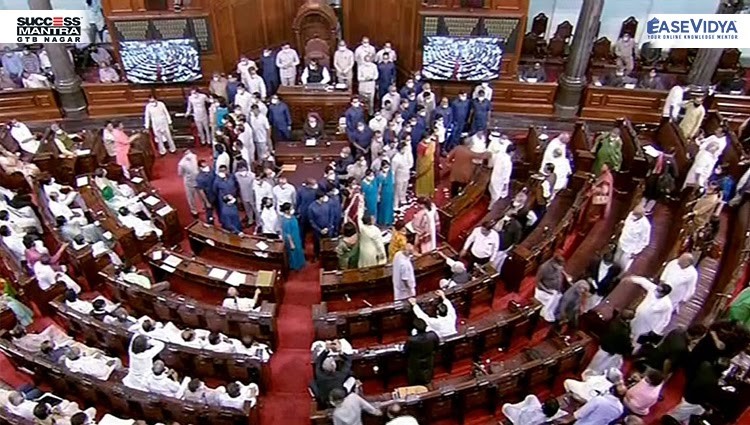
Disruption in Parliament
February 3, 2022
5 MINUTES
Disruption in Parliament
The Supreme Court in its recent judgment has observed that:
- A nation aspiring to be a “world leader” should debate on the welfare of its citizens rather than make Parliament a stage to exchange jeers and launch personal attacks on one another.
- With the completion of 75 years of Independence and ambitions of becoming a world leader, elected members should at least know that they are expected to show statesmanship and not brinkmanship in the House.
- Legislature is the first place where justice is dispensed to the common man through a democratic process.
How often are Disruptions in Parliament?
- A PRS (PRS Legislative Research) report says during the 15th Lok Sabha (2009-14), frequent disruptions of Parliamentary proceedings have resulted in the Lok Sabha working for 61% and Rajya Sabha for 66% of its scheduled time.
- Another PRS report said, the 16th Lok Sabha (2014-19) lost 16% of its scheduled time to disruptions, better than the 15th Lok Sabha (37%), but worse than the 14th Lok Sabha (13%).
- The Rajya Sabha lost 36% of its scheduled time. In the 15th and 14th Lok Sabhas, it had lost 32% and 14% of its scheduled time respectively.
Why disruptions?
- Discussion on Matters of Controversy and Public Importance.
- Disruptions May Help Ruling Party Evade Responsibility.
- Lack of Dedicated Time for Unlisted Discussion.
- Scarce Resort to Disciplinary Powers.
- Party Politics.
What needs to be done?
- To curb disorder in Parliament there is a need for strict enforcement of code of conduct for MPs and MLAs.
- The Chairperson should suspend MPs not following such codes and obstructing the Houses’ business.
- The government of the day needs to be more democratic and allow the opposition to put their ideas in free manner.
- A “Productivity Meter” could be created which would take into consideration the number of hours that were wasted on disruptions and adjournments and monitor the productivity of the day-to-day working of both Houses of Parliament.












0 Comment